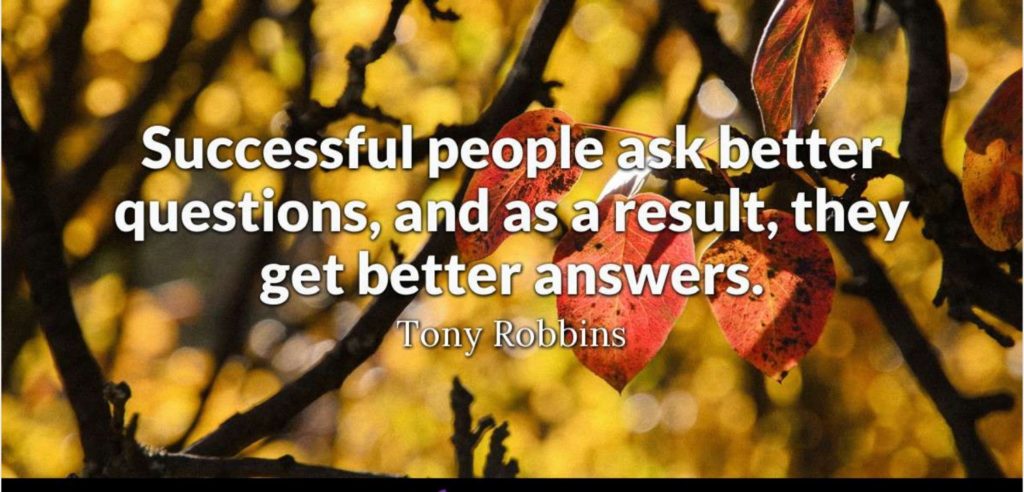
Without a way of understanding the nature of a ‘better question’ this is mere tautology. If we get a better answer then it must have been a better question! However, since we will not know until after the event, this is not a useful way of determining the nature of a ‘better question’.
I asked Talking Infrastructure Vice Chair, and Technology One Super Star, Jeff Roorda, for his view. This was his response.
-
Better questions are those that explore the future possible impacts of today’s decisions.
-
Better questions are those that recognise that the future is uncertain and do not seek to provide false comfort by claiming certainty in the assumptions we make and the outcomes we predict.
-
Better questions look at the things that could happen, and their costs and consequences, so that we can develop scenarios that act as a guide to the way we need to react as the world changes and as we get more information and more feedback.
-
Better questions recognise that we can choose the futures we want, and provide us the means to achieve them.
-
Better questions enable us to put in place a future accountability for present decisions.
These questions have 2 types of power and here Jeff focuses on the constructive power.
If we view the universe as a place of abundance and love then these 5 questions engender hope, gratitude and joy. These are the thoughts of creativity, invention and collaboration. The opposites are scarcity, greed and fear and both joy/gratitude and fear/scarcity are perceptions that are real in ones mind. They are a choice. Leadership is a choice for creativity, invention and collaboration, therefore joy/gratitude. Control and desire for power is the opposite and also a choice.These 5 questions shine a light of truth on perception so we can see what is in error.
If someone says “this infrastructure project will provide these benefits” then this must be tested now and in the future. In a spirit of joy/gratitude we recognise that our understanding is imperfect so we are not afraid to admit the uncertainty of our project/solution. We invite better ideas. Criticism and attack have no meaning – if someone has a better idea we welcome it and test it in the same way our idea was tested.

Following on from your comment on how do we determine the nature of a better question….we can ask better questions if have learnt from our previous questions!
If we do not continually update our knowledge-base from our experiences/learnings eg failures, what can we improve next time….etc, we cannot ask the questions that get us to the right answer.
Thanks Kim. We often see corporations or governments responding to a failure by claiming that it is a ‘learning experience’, or a ‘wake up call’. This is most often code for ‘we don’t have a clue what went wrong or what to do next’. So in our question asking, perhaps we can help general improvement by challenging anyone who uses these phrases to specify what was learnt and what is going to change as a result. We can do this in person at conferences, workshops or other FTF opportunities, or on twitter, facebook, or other media. If we do it often enough and firmly enough – and encourage others to do it too – we have a chance to focus attention on ‘updating our knowledge base’.